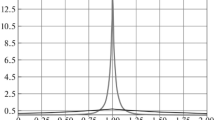Abstract
Consideration was given to a model of social dynamics controlled by successive collective decisions based on the threshold majority procedures. The current system state is characterized by the vector of participants’ capitals (utilities). At each step, the voters can either retain their status quo or accept the proposal which is a vector of the algebraic increments in the capitals of the participants. In this version of the model, the vector is generated stochastically. Comparative utility of two social attitudes—egoism and collectivism—was analyzed. It was established that, except for some special cases, the collectivists have advantages, which makes realizable the following scenario: on the conditions of protecting the corporate interests, a group is created which is joined then by the egoists attracted by its achievements. At that, group egoism approaches altruism. Additionally, one of the considered variants of collectivism handicaps manipulation of voting by the organizers.
Similar content being viewed by others
References
Mirkin, B.G., Problema gruppovogo vybora (Problem of Group Choice), Moscow: Nauka, 1974.
Aizerman, M.A., Dynamic Aspects of the Voting Theory (Review of the Problem), Avtom. Telemekh., 1981, no. 12, pp. 103–118.
Chebotarev, P.Yu., Some Properties of Trajectories in the Dynamic Problem of Voting, Avtom. Telemekh., 1986, no. 1, pp. 133–138.
Aleskerov, F.T. and Orteshuk, P., Vybory. Golosovanie. Partii (Elections. Voting. Parties), Moscow: Akademiya, 1995.
Borzenko, B.I., Lezina, Z.M., Lezina, I.B., et al., Model of Social Dynamics Defined by Collective Decisions and Random Environmental Changes, II Mezhdunar. konf. po probl. upr. Tez. dokl. (II Int. Conf. Control, Abstracts), Moscow: Inst. Probl. Upravlen., 2003, p. 120.
Chebotarev, P.Yu., Borzenko, V.I., Lezina, Z.M., et al., Model of Social Dynamics Controlled by Collective Decisions, in Tr. Inst. probl. upr. RAN., (Proc. Int. Control Probl.), Moscow: Inst. Probl. Upravlen., 2004, vol. XXIII, pp. 102–109.
Chebotarev, P.Ju., Borzenko, V.I., Lezina, Z.M., et al., A Model of Social Dynamics Governed by Collective Decisions, Proc. Int. Conf. “Math. Modelling of Social and Economic Dynamics” (MMSED-2004), Moscow: RSSU, 2004, pp. 80–83.
Author information
Authors and Affiliations
Additional information
Original Russian Text © V.I. Borzenko, Z.M. Lezina, A.K. Loginov, Ya. Yu. Tsodikova, P. Yu. Chebotarev, 2006, published in Avtomatika i Telemekhanika, 2006, No. 2, pp. 154–173.
This work was supported in part by the Russian Foundation for Basic Research, project no. 02-01-00614.
This paper was recommended for publication by F.T. Aleskerov, a member of the Editorial Board
Rights and permissions
About this article
Cite this article
Borzenko, V.I., Lezina, Z.M., Loginov, A.K. et al. Strategies of voting in stochastic environment: Egoism and collectivism. Autom Remote Control 67, 311–328 (2006). https://doi.org/10.1134/S0005117906020093
Received:
Issue Date:
DOI: https://doi.org/10.1134/S0005117906020093



